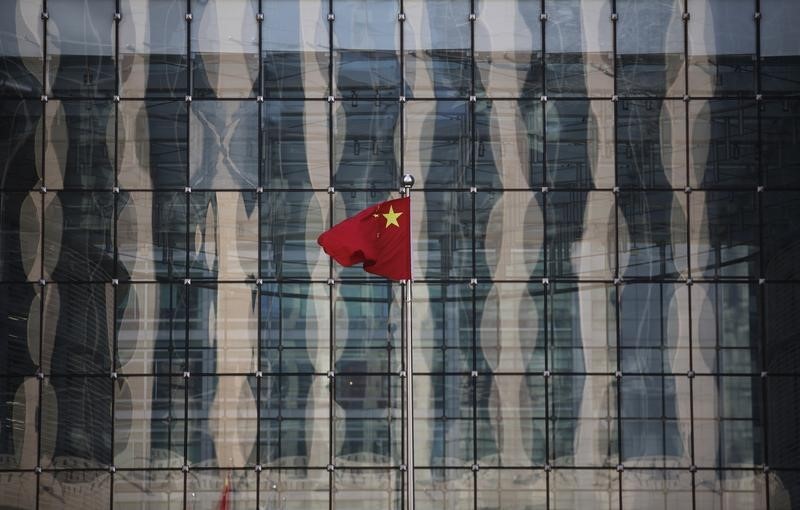BEIJING (Reuters) - China's fiscal policy should help steer structural changes rather than stimulating growth in a forceful way, a senior finance ministry researcher said in remarks published on Wednesday, amid a heated debate on how to steer policy as the economy slows.
The remarks by Liu Shangxi, head of Chinese Academy of Fiscal Sciences under the finance ministry, come amid a debate among government researchers on whether fiscal policy should help to soften the impact of a trade war with the United States.
"The current proactive fiscal policy, which is different from the traditional expansionary policy, is not direct government effort to expand demand, but indirect effort through stimulating market vitality, optimizing resource allocation and increasing quality supply," Liu wrote in the official Economic Information Daily.
China's fiscal policy should focus on adjusting the country's economic structures and controlling risks, instead of stimulating the economy in an indiscriminate way, Liu said.
China's economic growth slowed slightly to 6.7 percent in the second quarter as Beijing's efforts to contain debt hurt activity, while June factory output growth weakened to a two-year low in a worrying sign for investment and exporters as a trade war with the United States intensified.
The economy is starting to feel the pinch from a multi-year crackdown on riskier lending and debt, problems which were fueled in part by a massive stimulus program to support the economy during the global financial crisis.
The regulatory tightening has driven up corporate borrowing costs, prompting the People's Bank of China to cut banks' reserve requirement ratios (RRR) three times this year.
Liu's comments are the latest development in a brewing war of words started by the central bank's research heard Xu Zhong who said fiscal policy is not active enough and the budget deficit ratio this year should be higher.
Xu's remarks prompted an unidentified finance ministry official to write in the financial magazine Caixin that the size of the budget deficit does not simply indicate the finance ministry's push for a proactive fiscal policy.
Xu also wrote last month that China cannot rely on monetary policy easing to resolve its structural problems, and said fiscal policy should play a bigger role.
The central bank overseas monetary policy while the finance ministry supervises fiscal policy. It unclear whether the current debate reflects the policy stances of the two agencies.
In March, Premier Li Keqiang announced a cut in the annual budget deficit target from 3 percent of gross domestic product in 2017 - the first cut since 2012 - but the finance ministry said fiscal policy remained supportive for economic growth given a jump in planned special bond issuance this year.
Policy insiders said the finance ministry, which has been cutting taxes, could quicken fiscal spending in the second half to support investment, but any forceful stimulus looks unlikely.
The central bank is widely expected to deliver more bank reserve ratio (RRR) cuts in the coming months.
China's Politburo, a top decision-making body of the ruling Communist Party, is likely to discuss economic policies later this month, the policy insiders said.
In April, a Politburo meeting added "expanding domestic demand" back to the policy statement issued by state media, after dropping it in December.
